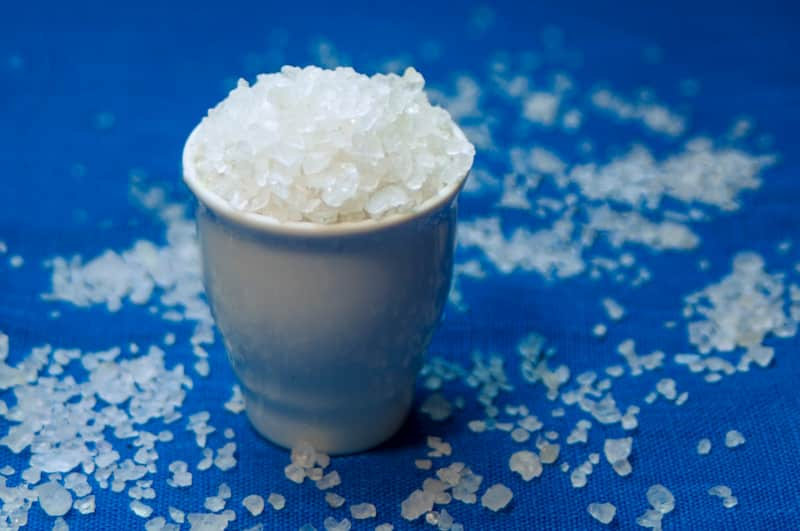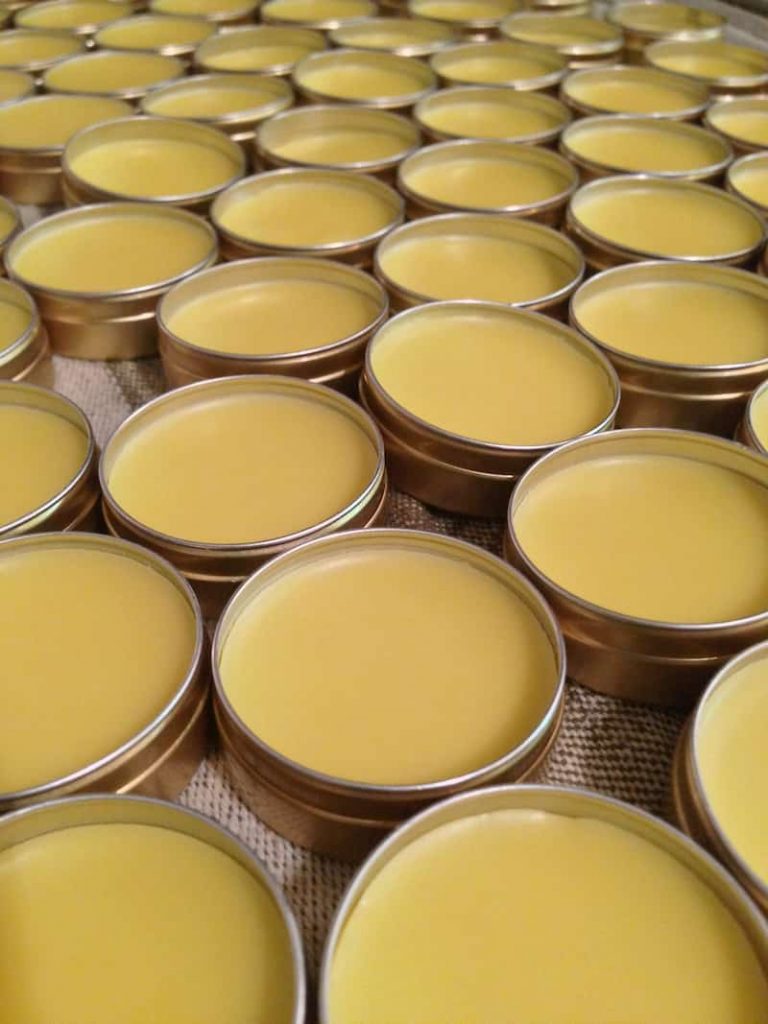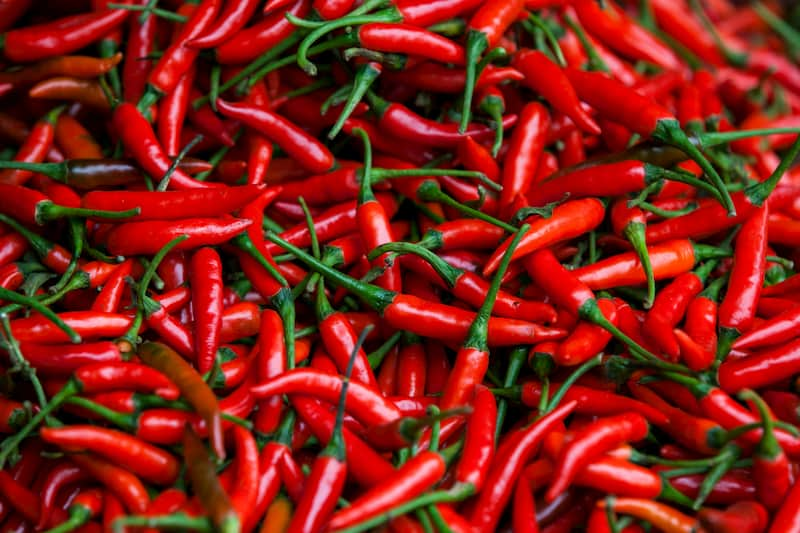
Achoo!
It’s a relief to see the days get longer and the warmer weather return – but for hay fever sufferers, the advent of summer is tinged with trepidation. From Spring through September, pollen from plants triggers the allergies of millions of Britons. Que the endless bouts of sneezing, streaming and teary eyes that are hard not to rub red, and that endlessly irritating itch at the back of your throat. The severity of hay fever symptoms can range from uncomfortable to borderline maddening, particularly for those with asthma. On some days, it’s enough to ruin your enjoyment of the summer months.
Hay fever isn’t a condition with a cure, and it’s frankly difficult to avoid a substance like pollen which floats through the air unseen, attaching to clothes, furniture and pets. But it isn’t without treatment, and there are some things you can do by yourself that can help reduce the symptoms. Here are just a few of the home remedies you can use to power through the pollen season.
Salt Water
Take a big breath of that fresh summer air … sucking all that pollen up into your nose! If you find your nostrils to be constantly irritated, it’s probably because there are allergens trapped inside the nasal passageways. One solution is to simply wash them out, a method known by such splendid terms as ‘nasal douching’ or irrigation [1].
Salt water is the best liquid to be using, with plenty of pharmacies stocking sachets of solution designed for this exact purpose. Small amounts of the solution are mixed with regular tap water, to be sniffed through one nostril at a time. Repeat as often as you wish until your nose feels comfortable again, using a fresh solution each time. Don’t panic if some of the solution runs down the back of your throat – spit it out if possible, but you won’t come to any harm from swallowing it.
It’s a remedy that can be done easily from the comfort of your kitchen, and should relieve those sensations of nasal irritation and itching.

Vaseline
A common household product, this brand of petroleum jelly is typically used for skincare – but has become an unexpected ally for hay fever sufferers.
The pollen prone have taken to rubbing a layer of Vaseline inside their nostrils, and in some cases under their eyes too. The jelly works as a barrier, trapping the pollen that would otherwise irritate the inside of your nose, or cause itching around the eyes. It may feel strange at first, but it certainly beats endless sneezing and itching. It’s simple and inexpensive, but many swear by the strategy, and it certainly doesn’t hurt to try.

Local Honey
Could adding a dollop of local honey to your yogurt or spreading it on your toast be an effective and tasty way to fight hay fever? According to the theory, consuming organic honey made by local bees exposes you to the pollen of nearby flora without inducing allergic reactions. By consuming it regularly, it helps your body adapt to the allergens, thus reducing symptoms. But does this actually work in reality?
The results are mixed at best. One study from the US seemed to show that honey consumption had no effect on the allergic response to pollen [2], while another experiment in Malaysia was much more positive, concluding that high dosage honey consumption could combat individual symptoms [3]. Given that both studies used honey created from completely different environments, it’s hard to judge between the two.
As a general rule, honey contains flower pollen, not the grass and tree pollen that triggers most hay fever symptoms. Still, local honey is delicious – perhaps worth a try for that reason alone (keep an eye on your sugar intake though)!

Herbal Teas
Pollen is obviously the origin of our hay fever symptoms, but the allergic reaction in our bodies is caused by Histamine. This substance protects the body from harmful infections, including allergens. While histamine is a good thing, it can become overprotective and react to harmless objects such as pollen or dust. The histamine response causes those unpleasant effects that we know well – inflammation, mucus production, sneezing, an itchy throat and eyes. That’s why the standard treatment for hay fever is Antihistamine medication, which curb the body’s allergic response to pollen.
Antihistamine substances aren’t just found in tablets. Chamomile is known to contain antihistamines and was historically used as a herbal anti-inflammatory [4]. Animal studies indicated that peppermint could also work as a natural antihistamine [5], and the compound of menthol found within peppermint oils also relieves nasal congestion [6]. Both of these make for soothing, relaxing teas which can be sipped throughout the day, helping you to stay hydrated and hopefully reduce your allergic response to pollen. Other favourites include nettle tea and green tea.

Vitamin C
Vitamin C is essential for good health. It helps us repair our body, protect our cells and maintain our skin, bones and blood vessels [7]. But the health benefits don’t end there. Studies show that Vitamin C could be an effective antihistamine [8].
If you’re looking to get more Vitamin C in your diet, try eating more citrus fruit. Great sources include oranges, lemons and grapefruits, which also contain flavonoids – a plant chemical which may have potential anti-allergy properties [9]. The vitamin is also present in other dietary sources, including:
1. Strawberries and blackcurrants
2. Broccoli and brussel sprouts
3. Red and green peppers
4. Potatoes, particularly the skin

Capsaicin
Ever eaten something so spicy that your nose starts running? You can attribute that to capsaicin, the component that makes chilli peppers hot. Even if you aren’t a fan of spicy food, you should try adding some chillies to your diet if you are suffering from nasal congestion. Trials seem to indicate that capsaicin could improve symptoms of nasal congestion as well as sinus pain and pressure [10]. Recently, Capsaicin nose sprays designed to open up the sinuses have increased in popularity.
Try cooking with sliced red and green chilli peppers, or adding them to salads. Next time you order a curry, remind people: it’s for your health!

Is Antihistamine Medication Available to Order Online?
If you’re looking for guaranteed effective hay fever relief, antihistamine medication is the best bet.
At e-Surgery, we stock both Telfast and its generic equivalent, Fexofanadine, available from just £12.50. They’re non-drowsy antihistamines, meaning they’ll be just as effective in treating the symptoms of hay fever but without inducing the need to sleep!
We also offer Avamys Nasal Spray, which works well to reduce the effects of allergic inflammation and provides relief from a stuffy, runny or itchy nose.
Prepare for the pollen season by ordering hay fever medication from e-Surgery, delivered quickly, conveniently and discreetly to your front door.
Sources
- Allergic Rhinitis: Treatment | NHS
- Effect of Ingestion of Honey on Symptoms of Rhinoconjunctivitis | PubMed
- Ingestion of Honey Improves the Symptoms of Allergic Rhinitis | PubMed
- Anti-allergic Activity of German Chamomile | PubMed
- Effects of Peppermint (Mentha piperita L.) Extracts on Experimental Allergic Rhinitis in Rats | PubMed
- Menthol: Effects on Nasal Sensation of Airflow and the Drive to Breathe | PubMed
- Health A-Z: Vitamin C | NHS
- Intravenous Vitamin C in the Treatment of Allergies | PubMed
- Flavonoids Inhibit Histamine Release | PubMed
- Trial Comparing Capsaicin Nasal Spray with Placebo in Subjects with … Nonallergic Rhinitis | PubMed
Further Reading
- Antihistamines | NHS
- Fexofenadine HCL| WebMD
- Avamys Spray | National Institute For Health And Care Excellence







